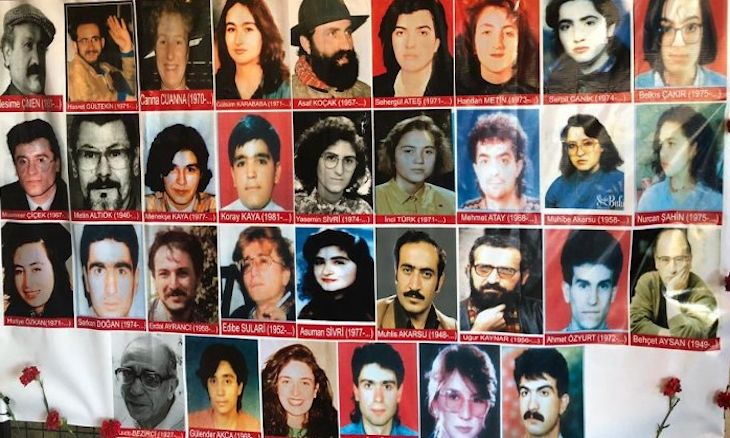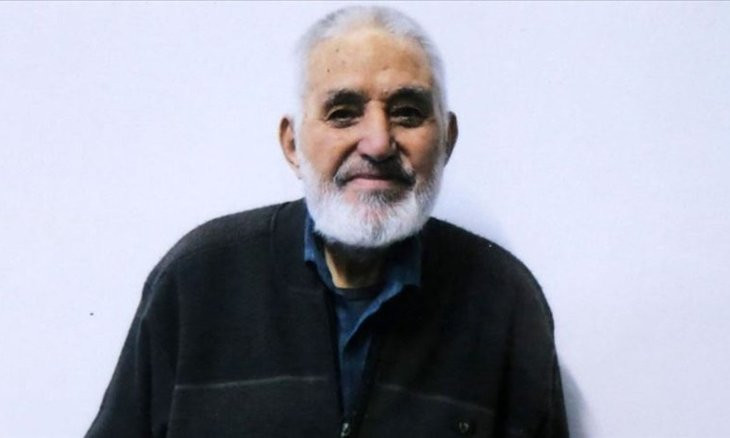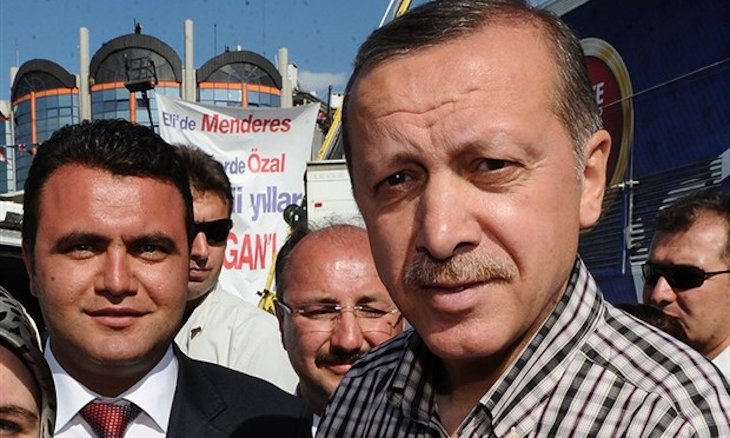Turkey remembers victims of Sivas Massacre on 27th anniversary
Turkey is remembering victims of the Sivas Massacre, which took place when a large group of radical Islamists set the Madımak Hotel in the Central Anatolian province of Sivas on fire on July 2, 1993, killing 33 intellectuals and two hotel personnel, on 27th anniversary. Also on July 2, a parliamentary inquiry to reveal the perpetrators of the Sivas Massacre was rejected by lawmakers of the AKP, MHP and the İYİ Party.
Duvar English
Turkey is remembering victims of the Sivas Massacre, which took place when a large group of radical Islamists set the Madımak Hotel in the Central Anatolian province of Sivas on fire on July 2, 1993, killing 33 intellectuals and two hotel personnel, on 27th anniversary.
A commemoration ceremony was held on July 2 in Sivas to remember the victims. Relatives of those killed in the massacre, lawmakers from the main opposition Republican People's Party (CHP) and the Peoples' Democratic Party (HDP) attended the ceremony in addition to rights groups.
Sivas Katliamı'nın 27'nci yılında, katledilen canlarımız için Madımak Oteli'ne karanfillerimizi bıraktık. Acımız da öfkemiz de dün gibi taze. Unutmayacağız, unutturmayacağız! #unutMADIMAKlımda pic.twitter.com/Vhc7XP2nHc
— HDP (@HDPgenelmerkezi) July 2, 2020
The attack against the Madımak Hotel targeted a group of artists and scholars participating in a conference organized by the Pir Sultan Abdal Culture Foundation (PSAKD), an Alevi organization. The event came at a time when writer Aziz Nesin, who was among the guests, had become a public target for translating Salman Rushdie’s “The Satanic Verses” into Turkish.
The participants of the conference were accused of being infidels by the large crowd outside, who had been provoked to action by a number of local political leaders, including the current leader of Felicity Party, Temel Karamollaoğlu, who refrains from calling the massacre a "massacre."
İnsanımızı ayrıştırmak, birbirine düşürmek isteyen karanlık mahfillerin sebep olduğu #Madımak Felaketi'nde yitip giden canlar hepimizi derinden yaralamıştır. Benzer hadiselerin ülkemizde bir daha vuku bulmamasını Cenâb-ı Allah’tan niyaz ederim. pic.twitter.com/25yj5GYr2S
— Temel Karamollaoğlu (@T_Karamollaoglu) July 2, 2020
In addition to the 35 people who died in the massacre, two protestors, who were in the crowd outside the hotel that instigated the events leading to the fire and who watched the hotel while people inside were burning to death and calling for help, also died in the fire.
'Museum of shame'
The building, which became a symbol of discrimination faced by Turkey’s Alevi population, was expropriated in 2010 and turned into a science museum. The families of many of those who died in 1993 have demanded for it to be turned into a “museum of shame.”
During the ceremony on July 2, the families repeated their request to turn the building into a "museum of shame."
Among those killed in the Madımak Hotel arson attack were poets Metin Altıok, Behçet Aysan and Uğur Kaynar, writer Asım Bezirci and Dutch anthropologist Carina Cuanna, as well as popular Alevi musicians Muhlis Akarsu and Nesimi Çimen.

Nesin was rescued by firefighters, but was beaten by them as he was rescued from the burning hotel.
Adding to the pains of the massacre, major impunity applied to the attackers. Most recently, President Recep Tayyip Erdoğan pardoned a man convicted of taking part in the massacre.
Ahmet Turan Kılıç was sentenced to aggravated life imprisonment over the incident, but Erdoğan lifted the 86-year-old man's sentence due to the health problems that he has been suffering within the scope of the 16th subsection of the constitution's 104th article.
 Erdoğan pardons man convicted of taking part in burning 35 people alive
Erdoğan pardons man convicted of taking part in burning 35 people aliveTurkey's radical Islamists are also "commemorating" the massacre by praising the attackers.
Fundamentalist daily Akit deemed the attackers "courageous sons of Sivas."
Former ruling Justice and Development Party (AKP) Sivas youth branch head Murat Toraman filed a complaint against those calling Sivas Massacre a "massacre."

Also on July 2, a parliamentary inquiry to reveal the perpetrators of the Sivas Massacre was rejected by lawmakers of the AKP, Nationalist Movement Party (MHP) and Good (İYİ) Party.
